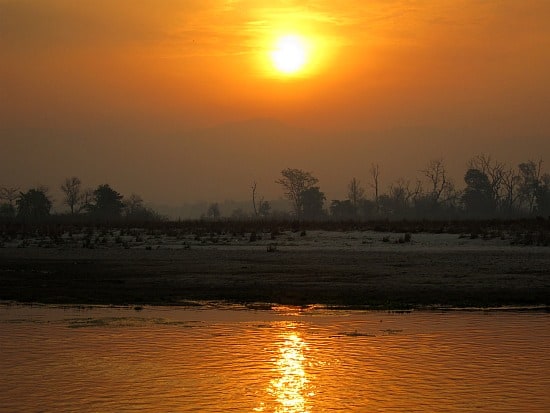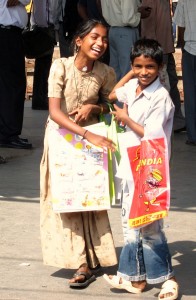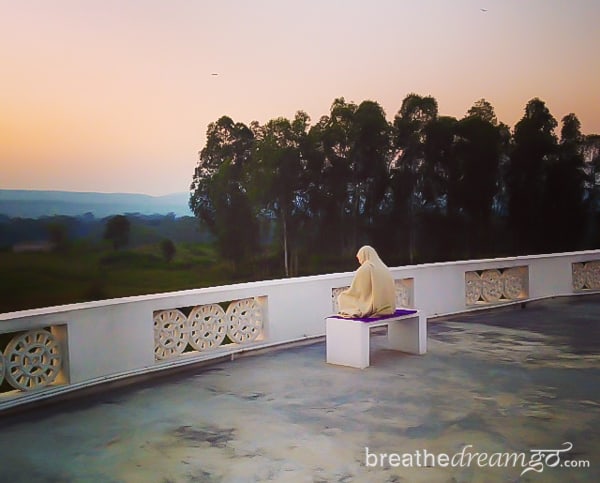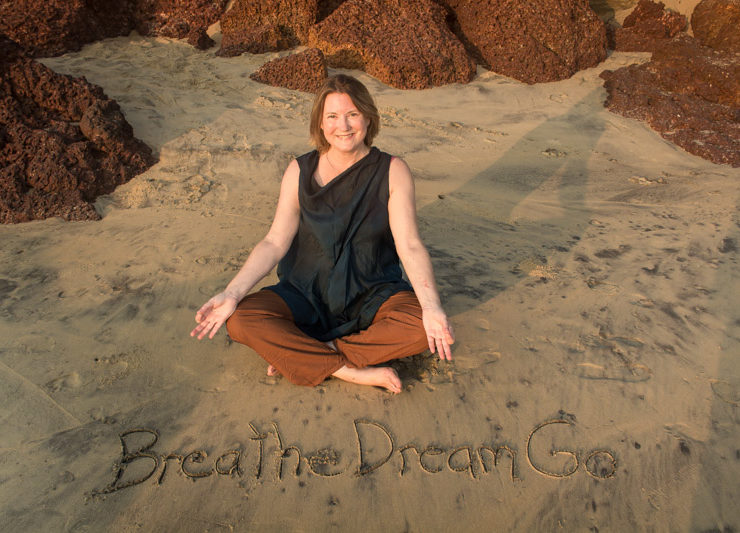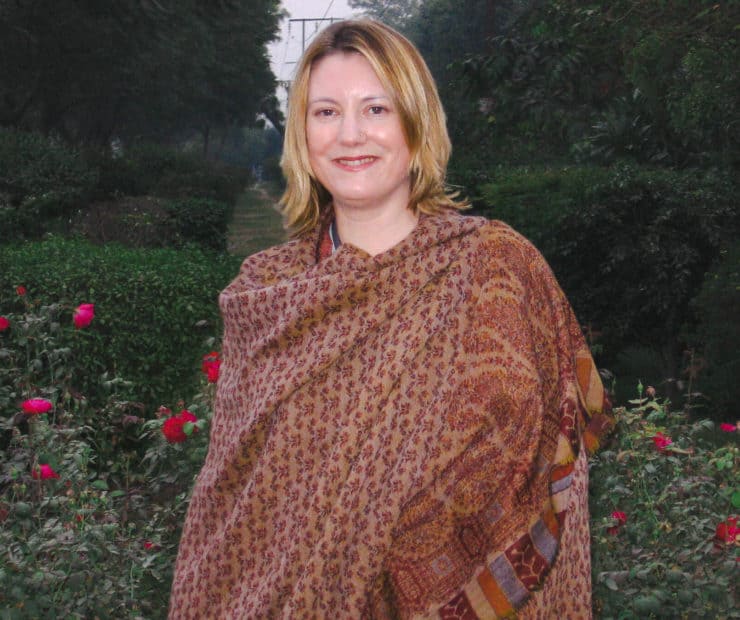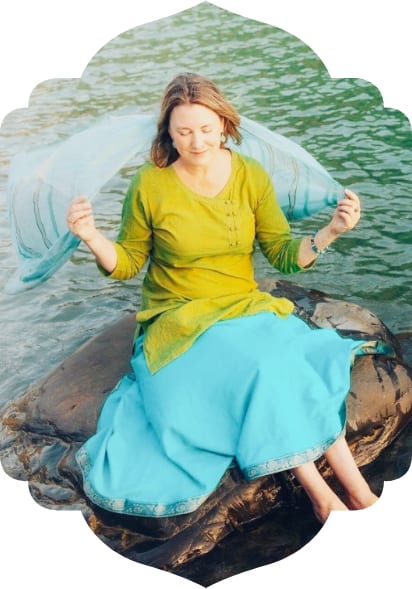Table of Contents
 India is a teacher; travelers are students
India is a teacher; travelers are students
People often ask me why I am so interested in India, why I like traveling there so much. There are lots of reasons, of course — from the warmth of the people, to the taste of the food; from the adventure of travel to the colourful festivals; from the flowing, feminine clothes to the sunny skies. The single most compelling reason, however, is probably the attitude towards god and spirituality — and how that attitude affects almost everything about the culture and atmosphere of India.
And what does that difference mean for me (and other spiritual seekers from the west)? It means that when I am in India, not only do I feel more alive than anywhere else (for the reasons listed above), but I learn a lot. I learn a lot about myself, about the world, and about spiritual truths. Travel in India is adventure travel in every sense of the word. Here are the top five things I’ve learned in India.
1. Don’t worry, be happy
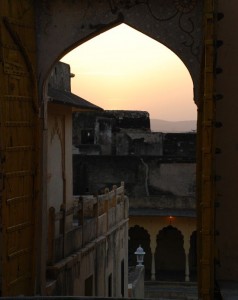
I’ve traveled for well over a year in India, most of it by myself. I’ve had to deal with crowds, chaos, delays, unhygienic conditions, culture shock, large insects, small rodents, illness and unwanted attention. Among other things. What I’ve learned from all of this is that everything works out. Not only does everything work out, deviations from your original plan sometime turn out far better than anything you could have planned. In fact, letting things happen, instead of trying to control them all the time, is the best formula for magic.
And even if it appears that things are not working out AT ALL, sometimes, it’s just our perception and understanding that is off. In fact, the universe is unfolding exactly as it should. When viewed through a certain lens, everything is perfect, and the universe is 100% supporting us; gently (and sometimes not so gently), guiding us towards our destiny and the lessons we need to learn to grow and learn. And best of all, it is absolutely within our control to view the universe through this lens, which some will call rose-coloured. I don’t know if it’s rose-coloured or not, but I do know that it makes for a much less tense, anxious, unhappy experience of travel, and thus of life.
I wrote an entire article about our control over our perception for Brave New Traveler, called Travel is an exercise in perception. To summarize, “we do not see the world the way it is; we see the world the way we are.” But not only do we see the world through only our own little window — which completely influences the way we see things — we can control how we see the world. India is a particularly good teacher of this truth because India is a very soft, pliable and responsive place: whatever attitude you travel with will be reflected back to you. If you’re frightened, you will have scary experiences. If you’re suspicious, you will be ripped off and even robbed. There seems to be a kind of instant karma at work.
This is why I always advise people to go to India with an open and trusting attitude. I genuinely love India, and genuinely trust (most) Indians, and this is why I generally have very good experiences there. Of course there are times when instinct teaches us to be cautious — and I always listen and respond to these feelings. It also helps that I have learned to trust myself, and that is the root of trust. Traveling in India is one of the most challenging things I have done, and the degree of self-confidence I have built up because of it is incalculable.
2. People are good
Okay, yes, there are exceptions … but when you put yourself in a vulnerable position, and when you open your heart with trust and faith and a feeling of goodwill towards your fellow man/woman, you will largely be rewarded with kindness. Sometimes extraordinary kindness.
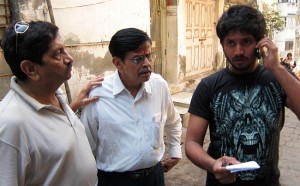
I have so many stories of people helping me, feeding me on a long train ride when I didn’t pack enough food; walking me to my destination when I didn’t know the way; inviting me into their homes and even families. And I’ve heard loads of other similar stories from people traveling in India, and elsewhere. When you travel, you open yourself up in a new way, and give people the opportunity to help you. It’s a lesson in the interconnectedness of life.
India is, unfortunately, known for con men, touts and other unscrupulous characters who try to rip people off by over-charging and other shady practises, but even many of these people would help you if you needed it. Many Indians are poor and this explains their behaviour to a large degree. I have seen people change in front of me when they realized I was treating them with respect, or when I needed their help. There are very few “bad” people, in my view. (And of course if you think you have come across one of them, you should be appropriately cautious.)
3. Yoga is not about putting your leg behind your head
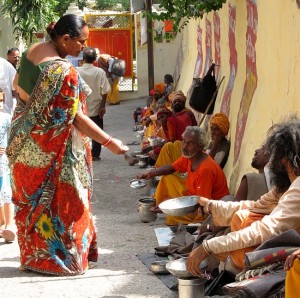
I studied and practised yoga for close to 15 years, even gaining a certificate in yoga teacher training, before going to India for the first time. I discovered that I had been swimming in a yoga pond; in India, I discovered a yoga ocean. There is no way to communicate how vast the difference is between the way yoga is taught and understood in India, as compared to in the west, if you haven’t experienced it. My understanding of yoga completely transformed in India.
The point of yoga is to still the mind so that you can experience the truth of your being. And what is the truth of your being? That we are all part of one god-consciousness; that we are made of bliss; that love is the basic substance of the universe.
Can you reach this understanding through the intense asana (physical) practise of yoga? Maybe. But that’s not the intention. Asana practise is intended to help you relax the body, and keep it fit and healthy, so it won’t distract you in your higher pursuits. It is a means, not an end. I wrote about this in What yoga is.
4. God is love
In India, I discovered a vision of spirituality that makes more sense to me than anything else I’ve come across — the advaita (or non-dual) idea that all life is part of one god-consciousness; that duality only exists in the field of time and space, and is illusory.
I agree with Mahatma Gandhi, who said, “I used to believe that god is truth; now I believe that truth is god.” I agree with Joseph Campbell who said, “People are not looking for meaning in life; they are looking for an experience of life.” I agree with Carl Jung who said that, “The purpose of human existence is to light a candle in the darkness of mere being.” And I understand why Buddha gave a teaching in which he simply held up a flower and said nothing.
My teacher, Swami Brahmdev of Aurovalley Ashram (who is a disciple of Sri Aurobindo), teaches something very similar: he teaches that the purpose of life as a sentient being is to increase our consciousness. We do this by having experiences, reacting, learning and growing. Life is basically a series of experiments, and, with the right attitude, you can see each one as an opportunity to learn.
5. Money does not buy happiness
In the consumer-oriented and materialistic west, we have come to equate money and happiness. However, in more traditional societies, like India, this link is not so resolutely forged (although that is changing with the rise of the urban middle class). It has been my experience that some of the happiest people I’ve met are also some of the least materially well-off. As long as people are getting their basic material needs met, they can be happy — with the right attitude.
The religious tradition in Indian teaches people to be content, to be grateful and to regularly thank and celebrate god for the gift of life and the beauty and abundance of nature. In traditional India, nature is considered sacred. And the society places a great value on family life and relationships. People know who they are, they are connected to their extended families, their communities and their roots. All of this makes for a base of people who are warm, generous and helpful, and who know what’s really important in life. And meeting people like this has been my experience traveling in India.
Every study on happiness shows these are the things that contribute far more to happiness than a big-screen TV, late-model car, huge house, fancy phone, designer shoes, wrinkle-free face and fat-free figure.
And for people who are afraid to travel to India because they don;t want to face the poverty, please read my Matador article India, poverty and the fear of traveling to poor places.
Summary
Seeing the universe as a loving, intelligent force that always has my best interests at heart — and learning to let go of the need to control, to let go of the need to “be” a certain way, and to surrender to the flow of life — has had an enormous impact on my experience of life. It’s made it much easier. And I am just a beginner on this path …
If you enjoyed this post, please sign up to The Travel Newsletter in the sidebar and follow Breathedreamgo on all social media platforms including Instagram, TripAdvisor, Facebook, Pinterest, and Twitter. Thank you!


